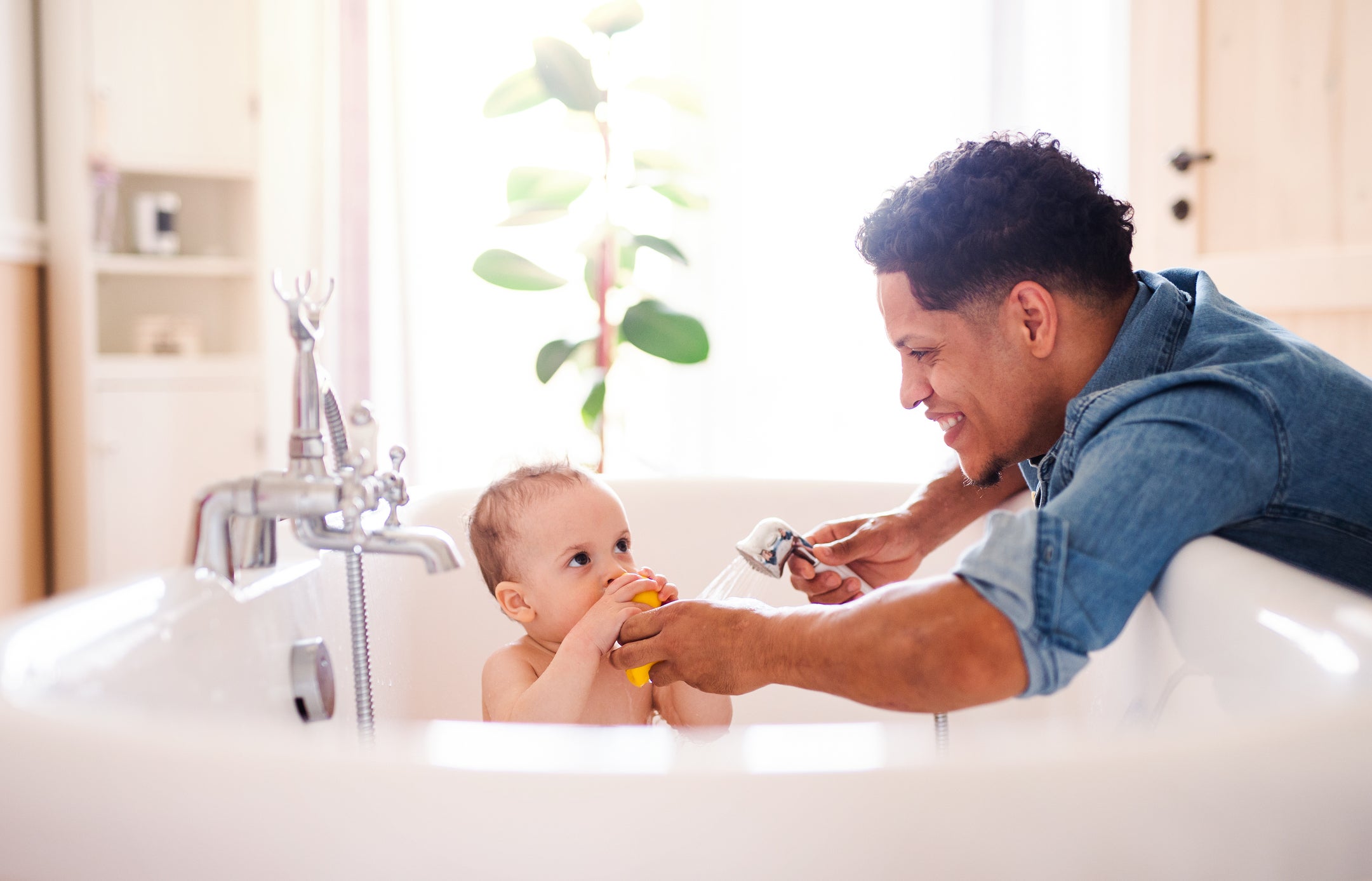-
Basic Things Everything Parent Should Know

Parenting doesn’t come with a guidebook. From the first ultrasound to the first day of college, parenting is bound to be simultaneously the hardest and the most rewarding thing you have ever done. If you and your partner are about to start this journey together, here are a few basic things you need to know.
No Parent is Perfect
It is so easy to get down on yourself. When you’re having a bad day, repeat this mantra: “No parent is perfect, but I love my child more than anything, and that’s what really matters.”
Learn to Listen
Active listening is a skill many people work on their entire lives. Even when speaking to a child, strive to make eye contact, don’t interrupt, and resist the urge to give unsolicited advice. Once your child is finished talking, say things like, “How does that make you feel?” or “What do you think we can do to fix that?” By avoiding the need to make every conversation a lesson from you, you empower your child to solve their own problems and encourage them to continue communicating with you.
Turn to Books to Help Solve Problems
Some bedtime stories are just for fun, but others teach important life lessons. Here are some books to make sure you have on the shelf:
- Sometimes I’m Bombaloo by Rachel Vail – Tantrums, ages 3 and up
- Chrysanthemum by Kevin Henkes – Teasing, ages 3 to 6
- The Recess Queen by Aleix O’Neill – Bullying, ages 4 to 8
- My Best Friend by Mary Ann Rodman – Friends, ages 5 to 8
Seek Value in Experiences, Not Things
If you worry about the cost of giving your baby a good childhood, realize that expensive things aren’t important to a child. Cut up a shoebox for puppet theater instead of buying the latest electronic toys. Make memories cooking dinner together rather than paying to be served at a restaurant. Let your kid play outside in hand-me-down clothing instead of worrying about their designer clothes getting dirty.
Rewards aren’t the Same as Bribes
Bribes are spur-of-the-moment decisions made to avert disaster, such as offering to buy your daughter a sucker if she stops having a tantrum in the checkout line. This teaches kids that acting out is the perfect way to get what they want.
On the other hand, rewards are planned ahead of time. Much like your job’s paycheck, they provide a concrete incentive to do a good job. When using rewards, make sure the incentives and expected behaviors are clear. Then, be sure to follow through.
Are you and your partner ready to take on the challenges and rewards of parenthood? Even if you’ve had a vasectomy, you still have options. Dr. Joshua Green of the Center for Vasectomy Reversal is a leader in helping men become parents. For more information about the vasectomy reversal procedure, please contact our Sarasota, FL clinic at 941-894-6428 or schedule a free consultation online.
-
How to Take Care of Your Baby’s Skin and Hair

A baby’s skin and hair are extra-sensitive, so it’s important to care for them properly. Follow these tips to avoid irritation, rashes, and allergies.
Choose Gentle Products
Scan baby skincare product labels and find those with as few ingredients as possible. Keep in mind that many of the best products may not be marketed toward babies. Here are some recommendations:
- Tearless shampoo
- Soap-free cleansers
- Petroleum jelly or zinc oxide cream in place of commercial diaper cream
- Alcohol-free wipes, or water and a washcloth
- Creams or ointments instead of baby lotion
- Fragrance-free liquid laundry detergent
Bathe Only When Necessary
To avoid irritating and drying out your baby’s skin, bathe no more than three times per week. Of course, “spot clean” as needed to remove soil and messes. In the first few weeks, sponge-bathe your newborn, focusing on creases and folds where moisture and bacteria can hide. Use cleansers in the private areas and underarms every time you bathe your child, and cleanse the whole body once a week.
If your baby has hair, apply shampoo at each bath. If you notice crusty scales known as cradle cap, shampoo daily with a pediatrician-recommended shampoo.
Change Diapers Often
Diaper rash is often the result of leaving a dirty diaper on too long, so keep an eye out, especially after feedings. Only use wipes when your baby goes number two. Then, to prevent chafing, apply diaper cream at every change. If your baby is prone to rashes, stick with disposable diapers because they keep the skin drier than cloth alternatives.
Dress with Care
Avoid wool baby clothes, which can be irritating. Soft cotton or linen is the way to go. Also, launder any new clothing before dressing your baby in it.
Shield Your Baby from the Sun
UV rays are particularly damaging to infant skin because it has less pigment to protect it from the sun. If your baby gets sunburned, this could raise the risk of skin cancer later in life. For the first six months, avoid spending long hours outside between 10:00 am and 3:00 pm when the sun is at its brightest. When you do head outside, follow these tips:
- Block the sun with a stroller shade or umbrella.
- Dress your baby in long-sleeved shirts and long pants.
- Put your baby in a wide-brimmed hat that covers the face and neck.
- Apply broad-spectrum, SPF-30-or-higher sunscreen. Look for a product with zinc oxide, which starts working right away. Then, remember to reapply every two hours or anytime your baby gets wet.
Are you and your partner ready to become parents? If you’ve had a vasectomy in the past, we recommend starting your journey by meeting with Dr. Joshua Green for a vasectomy reversal consultation. Our staff will provide concierge-level care and friendly interactions every step of the way. For more information, please contact the Center for Vasectomy Reversal in Sarasota, FL at 941-894-6428 or schedule a free consultation online.
-
10 Myths & Facts About Pregnancy

Expecting parents often enter pregnancy with lots of misinformation. Learn the myths from the facts to arm yourself with correct information.
- Eating for two: While it’s true that pregnant mothers should increase their caloric intake, they shouldn’t double it. No extra calories are needed in the first trimester. Then, women should eat 340 more calories per day by the second trimester and 450 more calories by the third.
- Exercise: It’s best to avoid rigorous exercise while pregnant, but doing light to moderate aerobics is highly recommended. A bit of physical activity every day can help maintain a healthy weight and develop the muscles and stamina needed for the delivery process.
- Morning sickness: Less than 2 percent of pregnant women experience “morning” sickness in the morning. Nausea and vomiting are most common between weeks four and 16.
- Heartburn and hair: The myth that having heartburn means the baby will have lots of hair has limited evidence to back it up. Still, a small study in 2006 found that 23 out of 28 expecting mothers who experienced moderate to severe heartburn gave birth to babies with an average or above-average amount of hair.
- Emptying the litter box: Cat feces may contain the parasite Toxoplasma gondii, which can cause toxoplasmosis. As a precaution, pregnant women should wear gloves while cleaning the litter box or ask someone else to do it. However, there is no need to avoid contact with cats during pregnancy.
- Coffee: Drinking coffee excessively can increase the risk of miscarriage during the first trimester. To avoid this, pregnant women should limit their caffeine intake to 200 mg, or 12 ounces of coffee per day.
- Alcohol: There no safe amount or time during pregnancy to drink alcohol. Women should also avoid it while breastfeeding because alcohol can enter breastmilk.
- Predicting the gender: Despite what family members may say, the shape or placement of a pregnant belly has no bearing on the baby’s gender. A fast or slow heartbeat also doesn’t reveal whether it’s a boy or a girl.
- Flu shot: The Centers for Disease Control and Prevention recommends yearly flu shots for nearly everyone, including pregnant women. The vaccine helps protect both mother and baby from the flu and reduces the risk of flu-related respiratory infections in pregnant women by half.
- Vaginal delivery following a c-section: Many parents wonder if it’s possible to have a natural birth after a previous cesarean delivery. The answer may be yes, but it depends on how the pregnancy is going and whether any complications arise during labor.
Are you and your partner interested in growing your family? If you have previously undergone a vasectomy, you still have options. Dr. Joshua Green of the Center for Vasectomy Reversal is a leader in guiding men and women down the path to parenthood. For more information about the vasectomy reversal process, please contact our Sarasota, FL clinic at 941-894-6428 or schedule a free consultation online.
-
Benefits of Eating Dates for Pregnancy and Labor

Dates may not be a fruit you usually keep on hand, but it deserves more attention than it gets, especially among pregnant women. Consider the benefits of eating dates for a healthy pregnancy and easier labor.
Why You Should Eat Dates When You’re Expecting
- Natural energy: Dates are one of the sweetest types of fruit, but since they’re also packed with fiber, the natural sugar doesn’t cause a blood sugar spike. Instead, you get a healthy, steady flow of energy, and you satisfy your sweet tooth at the same time!
- Constipation relief: High fiber foods also promote a healthy digestive system, thus helping prevent pregnancy-related constipation. Dates also keep you feeling full longer, reduce your cholesterol, and help you maintain a healthy weight.
- Birth defect prevention: Folate helps support healthy brain and spinal cord development in unborn babies. As a result, eating folate-rich dates before and during pregnancy can help prevent congenital disabilities.
- Bone development for the baby: Vitamin K is important for bone development and blood clotting. Consuming dates rich in this vitamin during pregnancy supports higher vitamin K levels when your baby is born. Continue eating dates while breastfeeding to pass even more of this vitamin on to your child.
- Anemia prevention: Dates contain some iron, which helps prevent anemia, or low red blood cell count. Iron also maintains hemoglobin in the body during pregnancy to strengthen you and your baby’s immune systems.
- Healthy water-salt balance: Potassium plays a role in water-salt levels and blood pressure. Eating dates can help prevent potassium deficiency for fewer muscle cramps and a lower risk of cardiovascular disease and stroke.
- Blood pressure and blood sugar regulation: Magnesium is another vital nutrient needed during pregnancy to help avoid high blood pressure, preeclampsia, placental dysfunction, and premature labor.
- Shorter, easier labor: Eating dates during the last few weeks of pregnancy can help ripen the cervix and promote uterine contractions for a faster delivery. It also reduces the risk of postpartum hemorrhage.
When and How to Eat Dates During Pregnancy
Dates are relatively high in sugar and calories, so don’t consume more than six per day during your pregnancy. It never hurts to ask your doctor about your desire to eat dates, especially if you have a high risk of gestational diabetes.
Dried dates are available at most grocery stores and are easy and convenient to eat. Stuffing dried dates with almonds or peanut butter is a great way to add protein to your snack. You can also blend dates into smoothies, chop them up into chicken salad, or add them to oatmeal cookies.
If you and your partner are interested in growing your family, but you previously had a vasectomy, you still have options. Dr. Joshua Green of the Center for Vasectomy Reversal is a leader in helping men and women become parents. To learn more about the vasectomy reversal process, please contact our Sarasota, FL clinic at 941-894-6428 or schedule a free consultation online.
Recent Posts
Popular Posts
categories
- Uncategorized
- Sperm Retrieval
- vasectomy reversal
- Emergency
- Dr. Green
- sperm count
- fertility
- male infertility
- MESA
- medical care
- low sperm count
- IVF
- male fertility testing
- anesthesia
- pregnancy
- sperm aspiration
- semen analysis
- post-vasectomy pain syndrome
- infertility
- VE
- anti-sperm antibodies
- older dad
- general anesthesia
- gender reveal party
- post-operative infections
- baby name
- parent
- baby's first year
- fertilization process
- spinal anesthesia
- ACS Fellow
- nutrition tips
- concierge-level care
- fertility planning app
- azoospermia
- out-of-town patients
- V-V
- post-vasectomy reversal
- conceiving
- vasectomy
- vasoepididymostomy
- smoking
- sperm quality
- baby registry
- infographic
- surgical care
- surgical consultation process
- prostate cancer
- baby gender
- family time
- COVID
- Baby Shower
- Child Care
- Halloween Costume Ideas for Babies
- Halloween
- Halloween Safety Tips
- Celebrity Infertility Spotlight
- Postpartum
- testosterone
- Father's Day
- Father
- Men's Health
- Thanksgiving
- Pregnancy Announcement
- Parenting Tips
- Sperm
